Tata Cha cafes hope to create a feel of a roadside tea cart, casual college canteens, old Irani cafés and even the chai joints encountered on journeys through the Indian countryside.
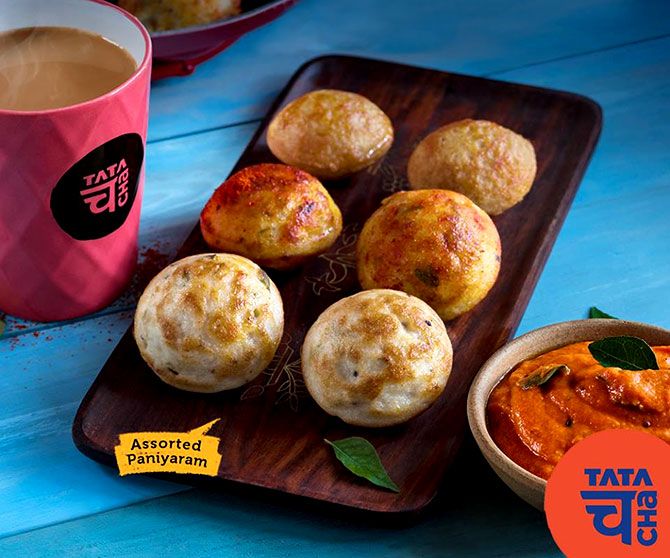
As the country’s fledgling business of tea cafes finally gets a fillip from its tea drinking masses, one of the oldest groups in the business has jumped into the fray.
Tata Global Beverages, with four cafes in Bengaluru and plans to expand into other metros, is taking the fight to newly-minted chai entrepreneurs such as Chaayos and Chai Point and to smaller retail ventures by the big companies: Hindustan Unilever and the Wagh Bakri group.
Experts believe that the timing is right for TGB, which controls almost 21 per cent of the tea market in the country, to exploit its long-standing experience in the business, given that more tea drinkers are now willing to step into a café.
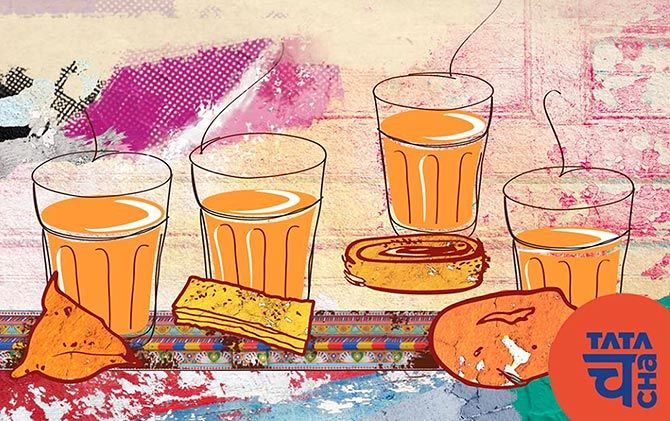
But Tata Cha needs more than an understanding of the brew and real estate to compete with the young entrepreneurs. The brand must define an identity that is distinct from the rest and also walk the line between price and value to keep young café goers coming back for more.
The way to do that, the company believes, is to make the brand stand for something that the young can easily identify with -- a desire to recreate the good old days. To that end TGB says that it is crafting its brand strategy around nostalgia. 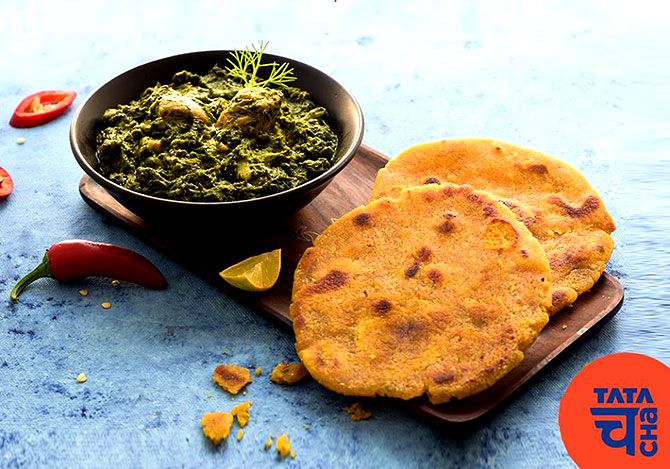
Tata Cha wants to bring back memories of growing up, warm mornings and a taste of home-made tea says Sushant Dash, regional president, India and Middle East, TGB. “We have been very clear on our branding plan to evoke a sense of nostalgia that would take the consumers back to their childhood days. At Tata Cha, the essence of our offerings is rooted in being authentically Indian and yet, modern and contemporary, creating a space that pays homage to the warmth of tapri chai,” said Dash.
This is not the group’s first foray into tea cafés. Nearly a decade ago, the group had experimented with the idea with Chai Unchai. They were meant to replicate the experience of the roadside vendor, albeit in a clean and hygienic environment. 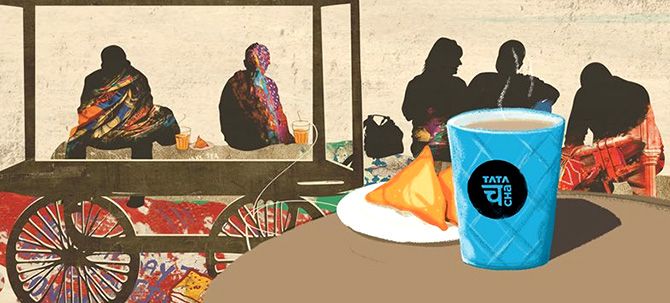
Experts say that the idea was before its time and hastily implemented and also people never really saw the benefit of paying more for a cup of tea. Indians have always preferred to drink their tea at home or unceremoniously gulp it down off the street.
Dash says, “At that point the pilot was successful but we decided to work on the global markets. Hence, the decision was to rather concentrate on ambient products.”
Tata Cha cafés have been envisaged as a place where people come in for a chat, a cup of tea and to grab a quick bite.
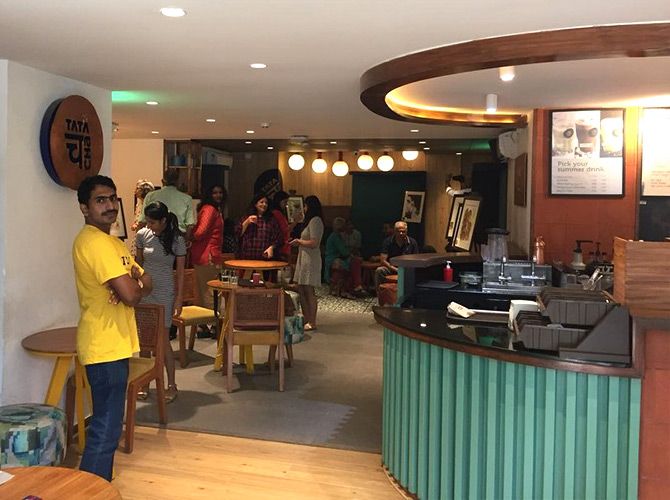
It is not just a clean and hygienic alternative to the chaiwallah. The brand is not being pitched as a budget chain, but the idea is to make consumers feel at home and yet surprise them with differentiated menus. On the list are masala rusk and cinnamon rusk starting at Rs 25 per piece and the kadak chai starting at Rs 30. “This makes it affordable, youthful, homely -- and yet out of home,” says Dash.
It helps that restaurants are booming in the country. According to the India Food Services Report by Technopak and National Restaurant Association of India, 36 per cent of Indian consumers see eating out as an opportunity to get together with family and friends. TGB has set its sights on the young office going metro dweller, the same target audience that start-ups such as Chai Point and Chaayos have identified.
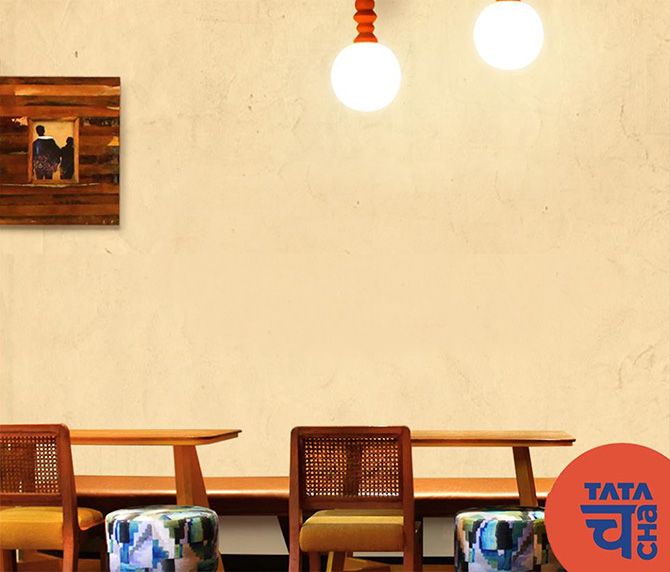
Tata Cha cafes are designed to create a feel of a roadside tea cart, casual college canteens, old Irani cafés and even the chai joints encountered on journeys through the Indian countryside.
Tea is a Rs 23,000 crore market and according to the TGB research team, Bengaluru consumes more cups of tea per day as compared to coffee, so they see a significant opportunity here. The city is quite a favourite for tea and coffee chains of every shade and hue and with Tata Cha in the fray, expect these brands to reinvent their offering and put up a stiff fight on prices, say experts.
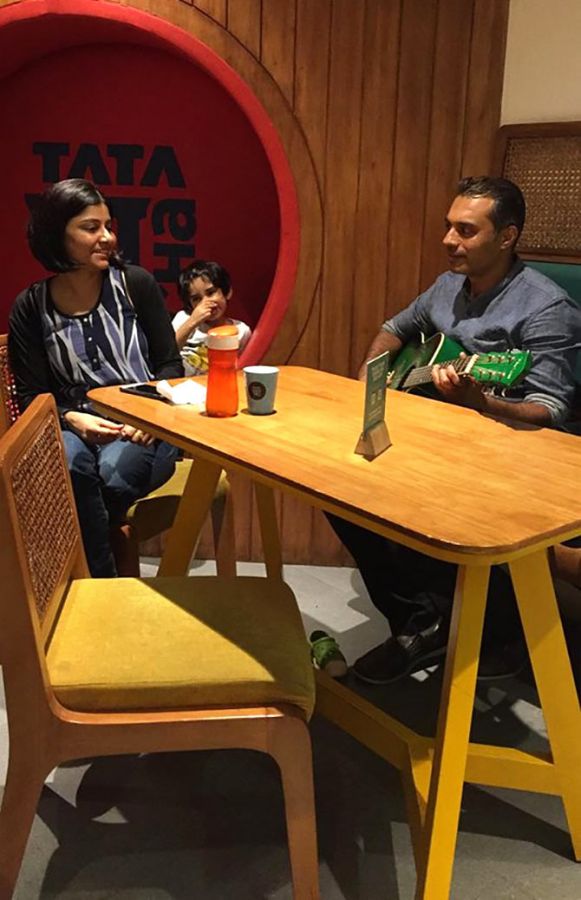
The company feels it has an edge over its rivals, since it has far more experience in the business of tea which spans over five decades. However, the tea market is huge and there’s opportunity for all to scale up says Dash.
Chai Point, founded by Amuleek Bijral, which is currently India’s largest chain of organised tea stores, recently opened its hundredth store in Bengaluru. 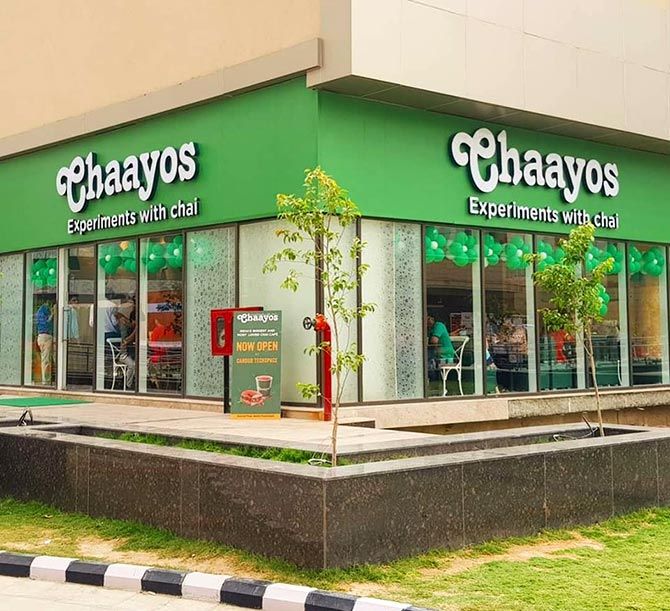
What could help Tata Cha stand out in the crowd of branded tea shops is of course its experience, but also the food it puts on the table says Ambi Parameswaran, CEO, Brand-Building.com. “Tatas will not just replicate what is available at Starbucks but figure out a different playbook. May be more ethnic flavours, not just the standard chai. Also more interesting things to eat, not the standard sandwiches,” he says.
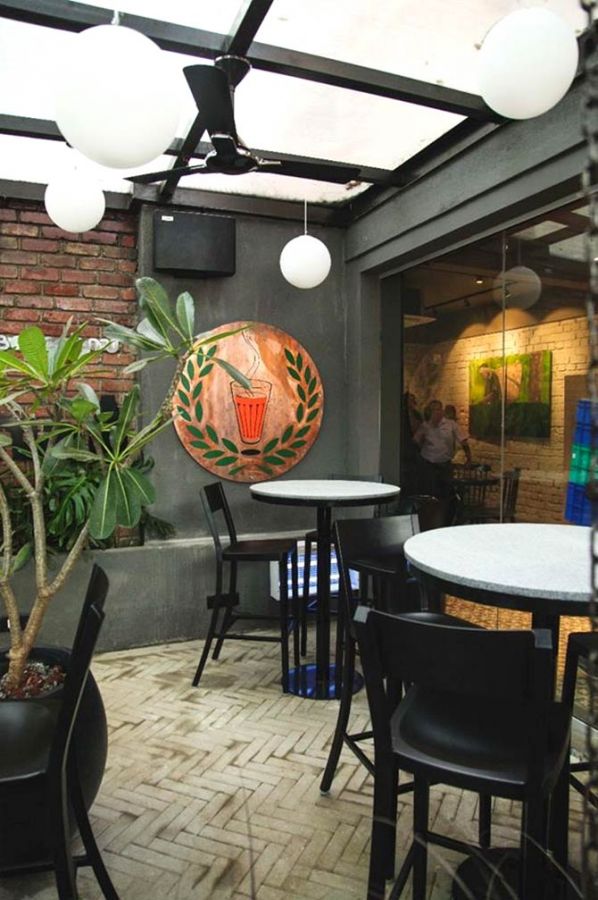
TGB says it is positioning itself distinctly from Starbucks, a joint venture between TGB and Starbucks Corporation. At Tata Cha, the essence is Indian with a contemporary twist. And the core proposition is freshly-boiled tea made one cup at a time without compromising on consistency and taste.
Tata Cha
Newly launched, has set up 4 outlets in Bengaluru.
Chaayos
Set up in 2012, has cafes in Delhi, Mumbai, Gurugram, Noida, Ghaziabad and Chandigarh.
Chai Point
Set up in 2010, present in Bangalore, Delhi, Gurgaon, Noida, Mumbai, Pune, Hyderabad and Chennai.
Wagh Bakri Tea Lounge
Started in 1998-99, present in Ahmedabad, Mumbai, New Delhi and Goa.











